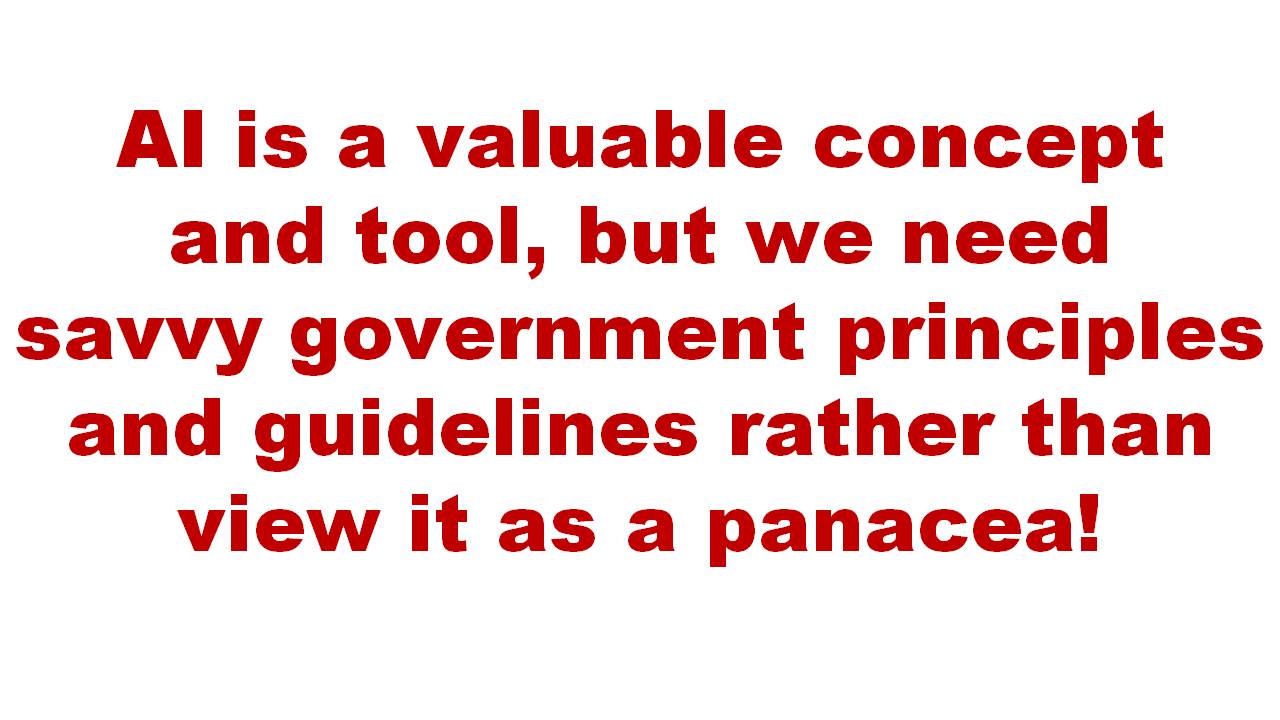by Peter A. Arthur-Smith
“New tools can create fake videos and clone the voices of those closest to us!” Sub-headline of Christopher Mims Wall Street Journal Exchange section article, ‘The Rise of AI is Causing the Decline of Truth,’ November, 2023

Instead of relying upon AI to think for them, most effective leaders are likely to view it as a useful tool to aid their team’s activities. They are unlikely to be easily distracted by the hype surrounding this new medium, although will draw upon its advantages wherever appropriate. They will realize many of the shortcomings of AI, even though designers are racing to close the gap between AI’s current performative capabilities and their desire for it to be viewed as a panacea.
Designers are aware that, if they cannot close this gap quickly, then they will probably lose the race to monetize it as much as possible. It’s as simple as that – hype orchestrates profit. To monetize AI, designers need you to become dependent upon it as much as possible – much in the same way as happened with PowerPoint, PDFs, the Internet, Instagram, Twitter/X, and so on.
In fact, it’s a race to the death, since there’s so much money at stake – stock market investments, corporate profits, new robots, factory automation, driverless cars, office systems, automated customer services, academic programs, hospital procedures, and so the list goes on. Apart from making lots of money, the nirvana outcome is the intention for people not to have to think anymore! The latter has particular allure, since many, unfortunately, would rather avoid thinking especially hard unless they really have to…Silicon Valley relies upon this human quirk.
That’s fine. But questions such as: “How responsible will designers be in developing these AI tools?” and “Will they push for maximum profit, regardless of the consequences?” or “Will they seek to balance people and ethical issues with the intended benefits of AI?” We should listen to Peggy Noonan, Wall Street Journal columnist, in her December 2023 article ‘AI is the Y2K Crisis’: “They (Silicon Valley leaders and operatives) seem apart from the great faiths of past millennia, apart from traditional moral or ethical systems or assumptions about life.”
Just think, if Wall Street and other stock exchanges can pull this tide off, to bamboozle people into believing AI is our savior, then their returns on investment could be enormous – in the short term! But once people are sucked-in and realize the full consequences of AI – loss of good paying jobs, deep-fakes, voice cloning, political propaganda, fake information, fake images, misinformation taken as authentic, fake personal pictures, and so on – the tables could eventually be turned. All of these possibilities will probably depress public trust in information sources; even lower than it is today. An avalanche of all these possibilities could cause our current society norms to collapse! If this latter moment happens, it could be too late!
Enlightened leaders (ELs), who are usually ahead of the game, are likely to push back against these trends for the sake of society and their team members. They are strongly inclined to sustain a healthy skepticism of evolving AI systems and tools, in order to keep things in balance as much as possible out of respect for their team members. On the other hand, conventional managers (CMs) are likely to jump on the band wagon for due to profits and potential ease of controlling their employees. Cutting people out of any workplace equation is a natural instinct for them. Having perfect prose, punctuation, analytics, guidelines, sequencing, and turn of phrase is likely to be way more important to them, rather than require authenticity or people sensitivity.
So there we have it. Do we wish to be washed along with the tide, because it sounds sexy and becomes the new wave, or do we wish to sensibly push back against this tide to find the right balance and sustain authenticity? If we prefer the latter, then we ought to bring as many enlightened leaders (ELs) out of our organizational woodwork as is possible. Instead of hiding them away in corporate closets, because they don’t kow-tow to short-term profit making or potential fads, we should celebrate their enlightened thinking – even if a little inconvenient at times.
Don’t be fooled by AI. Celebrate its supportive value, although, for the sake of society, don’t view it as a panacea.
